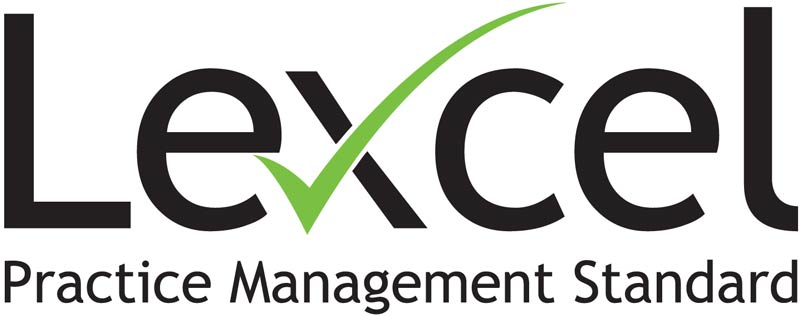Before purchasing your business, a properly advised prospective buyer will want to undergo due diligence. It’s a way to help ensure the information in any accounts or sales brochure that you’ve provided is accurate and that they don’t get any nasty surprises after the sale’s completed. Whilst most people can appreciate why due diligence matters for a buyer, the importance of due diligence when selling a business is often overlooked. In this guide, we’ll break down what due diligence is, why it matters, and how you can prepare for it.
What is due diligence?
Due diligence is the process of collecting all necessary information before making an important decision.
Imagine you’re buying a house. You wouldn’t want to take out a huge loan or put your life savings into a property, just for it to crumble into dust the second the sale goes through. This is why many buyers want, and many lenders insist on, a survey as part of the buyer’s due diligence. To ensure their client is protected, the buyer’s solicitors are also likely to raise a series of questions about the property.
When purchasing a business, a buyer will want to take similar precautions and will use the due diligence process to gather information about its finances, assets, liabilities and commercial potential to determine its value.
What’s the importance of due diligence when selling a business?
Answering due diligence in a reasonable manner is important, as the replies to enquiries and information provided, can act as disclosures against contractual warranties in the sale agreement. If a buyer formerly knows about an issue which may otherwise be a breach of warranty, then it cannot sue the seller (assuming the contract is drafted reasonably from a seller’s point).
When is due diligence performed?
Due diligence is undertaken initially at the start of the process but is often updated throughout the deal, right up until completion.
Before divulging any sensitive information, you may want to put in place a non-disclosure agreement (NDA) with the buyer. This is often done as part of the formal heads of terms, or with an agent’s deposit agreement if you are using an agent to advertise the sale.
For obvious reasons, you wouldn’t want to divulge sensitive information about your company lightly. Undertaking due diligence with the protection of an NDA in place helps ensure that the inner workings of your business are only shared with necessary parties, and any sensitive information is protected should the sale fall through.
How does due diligence work when selling a business?
Once sale terms are agreed, the prospective buyer’s solicitor will usually provide a due diligence questionnaire outlining the information they require before completing the purchase.
Whilst you may be able to provide much of the information without the buyer’s direct involvement, on-site visits may also be required, and if a property is involved, then the buyer (or its lender) may well require a survey by a third-party surveyor too.
Following the initial questionnaire, additional questions may be submitted to delve deeper into any issues your buyer feels need further clarification.
How to prepare for due diligence when selling a business
As long as you’ve got no skeletons deliberately hiding in closets, due diligence isn’t anything to worry about.
That being said, it’s worth preparing for the due diligence process, ideally before a buyer is found, to ensure it goes as quickly and smoothly as possible. You can do this by:
- Ensuring your solicitor is experienced in managing due diligence and disclosure processes to give you the best possible protection
- Make sure you have all of your business documentation in good order (and in digital format, ideally)
- If you’re missing any documentation, policies and procedures, or written contracts with key clients or suppliers, start the process of replacing the documents
What will be included in the due diligence questionnaire?
Whilst this depends on the buyer’s requirements, and the structure of the business being sold, there are several topics you’d expect to be covered:
- Is it a share sale or an asset sale?
- Corporate structure (if it’s a company): How is the company structured? Who owns shares? Are there any restrictions on how they can be traded?
- Assets (if it’s an asset sale): Who owns the assets and how?
- Accounts and Finance: How is the business performing financially? What are its prospects for the future? Are there any issues with the accounts?
- Litigation: Is the business involved in any litigation or disputes? Could these pose a risk to the buyer or business?
- Compliance: Is the business compliant with all relevant regulations?
- Customer Contracts: Are customer contracts enforceable post-sale?
- Employees: Who are your employees? What are their credentials? What salaries and benefits do they get? Are the employee contracts suitable?
- Property: What properties does the business own or lease? Do you have all the relevant documentation? What do your rental agreements look like?
- Tax (particularly for share sales): have tax returns been filed correctly and have all payments been made up to date? Are there any potential issues?
- IP: Does your business own its intellectual property? Do you have all the required documentation to show this?
- Cyber Security and Data Privacy: Has the business taken the relevant precautions to protect its network from cyberattacks? Is its management of data GDPR compliant?
How long does due diligence take when selling a business?
The time it takes to complete the due diligence process can range from a few days to several months, depending on the size and nature of your business, and the terms being agreed upon. Before starting, if agreeing formal heads of terms, you can try to negotiate an investigation period with your prospective buyer, which will run alongside the legal process during which all due diligence will be dealt with. This can help to keep parties focussed and stop buyers from getting carried away on relatively trivial points.
Do I need a solicitor?
Whilst it’s not a legal requirement, having an experienced business solicitor manage the due diligence process will help to ensure everything goes smoothly and reduce the risk of a claim against you post-completion. As much as anything else, it can help keep stress levels to a minimum!
Some buyers may leverage the information you provide to try and renegotiate the agreed price. Having an experienced and skilled business solicitor on your side may help deter such underhand tactics, and can provide reassurance that any negotiations in price are proportionate to any defects or issues which a buyer may have found during the process. This all helps to give you valuable peace of mind.
At Scott Bailey, our specialist corporate and commercial solicitors have extensive experience helping owners manage the sale of their businesses. If you’re preparing to sell your business, or have already begun the process and need help, contact us today to get started.
If you’re selling your business, we have lots of great resources to help you navigate the process. From top-level guides, including our essential pre-sale checklist for selling your business and our guide to selling a small business, to more specific ones, including our guide to selling a veterinary practice, our top tips for selling a dental practice, and our guide to selling a care home.







